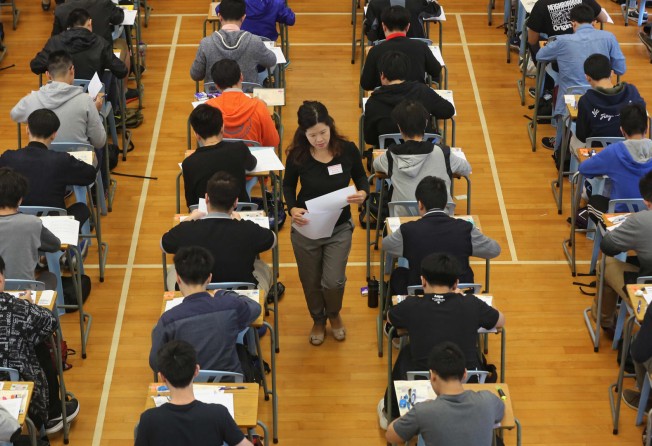Hong Kong students need more options - and less stress
Tik Chi Yuen applauds the proposal to cut study time for Hong Kong's senior secondary students, but says more could be done to support those who are not academically inclined

The latest official review of Hong Kong's academic structure, which recommended cutting total study time by at least 100 hours for senior secondary students, brought good news to both students and their heavily burdened teachers. The cut should ease some of their workload. Yet, the review leaves some obvious questions.
For those who have only a slim chance of getting into university and prefer a vocational education, is there a third way for them? A friend's daughter, JJ, who will enter Form Six this September, is being armed to tackle the Hong Kong Diploma of Secondary Education exam next year. For this, she attends supplementary lessons at school on each weekday, and half a day on Saturdays, during the summer holidays.
This "suffering", as she describes it, leads her to welcome the proposal to cut total lesson time for the three years of senior secondary education, from 2,700 hours to between 2,400 and 2,600 hours. Lesson time for "other learning experiences" will also be cut, from 15-35 per cent of total study time to 10-15 per cent.
However, the review does little to help vocation-oriented students. JJ, who wants to work as a film producer after graduation, is keen to learn by doing - say, by joining the production team for campus television. Unfortunately, the current structure cannot provide her with an internship in a professional field.
DSE graduates, in the face of fierce competition from university graduates, do not have plenty of career choices. According to the Census and Statistics Department, youth unemployment for the first quarter of this year for those aged 15-19 is 13.9 per cent, dominating the ratios for all age groups.
As part of the review, the Education Bureau should add more vocational courses or part-time enrolment at vocational training schools, which in turn could line up more commercial and industrial partners to boost internships and career opportunities. Such enrolment in vocational courses and internships should become part of students' official record, empowering them with dual academic and vocational credentials for a promising future.
JJ did not have a smooth transition from Form Three to Form Four. After she failed a non-compulsory mathematics module, she dropped the course as she was struggling with the complicated content and could not spare the time needed to do well.
She is not alone. According to a survey in January by the Evangelical Lutheran Church of Hong Kong, which polled some 1,300 students from Form Four to Six, nearly a fifth of them said they considered dropping their electives, while two-fifths had already dropped them. Many said they simply could not cope, or that their expectations did not "meet reality".
Notwithstanding the reality on the ground, the recent review still concluded that students "of high ability" should be encouraged to take three electives.
The high drop-out rate is in fact a waste of time, school manpower and resources. Is there any way for Form Three students to make a smooth transition to senior secondary education? They could be allowed to take Form Four electives on trial - say, for two weeks - with the option to drop the subjects if they didn't suit. This would save precious resources.
Further, the review of the academic structure was mainly focused on academic quality and international benchmarks. What was seldom mentioned was strengthening the emotional health of students. In the survey by the Lutheran church, Form Four students rated their stress index as 6.8 out of a maximum 10, compared with 6.6 for Form Five students and 6.5 for Form Six students. And this might be understating the problem: when I asked JJ, without missing a beat, she said her stress level scored a 10.
It is vital that students have a positive mindset and stable emotions to help them study. Perhaps at least some of the time from the cut in class hours could be used for intensive counselling sessions focusing on stress management.
Tik Chi Yuen is chief executive of the Hong Kong Institute of Family Education